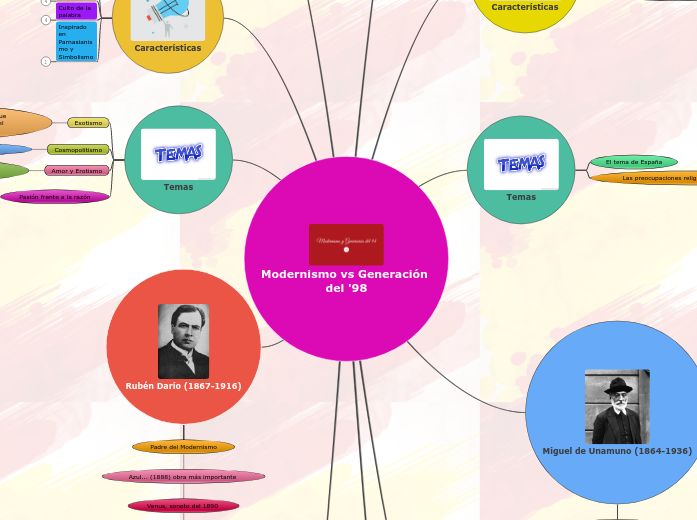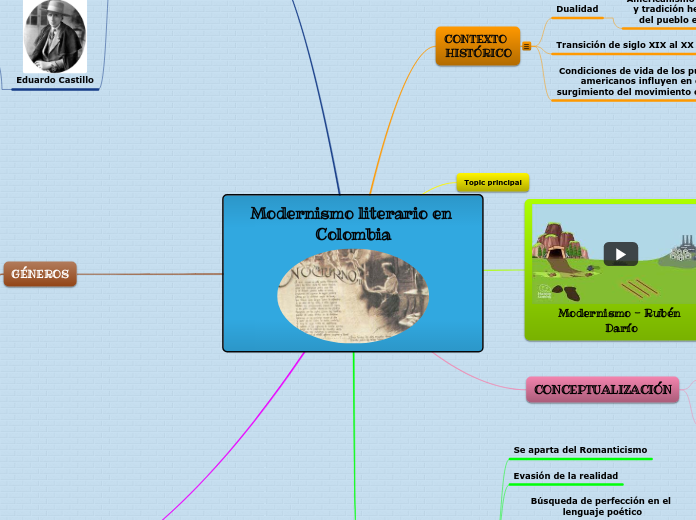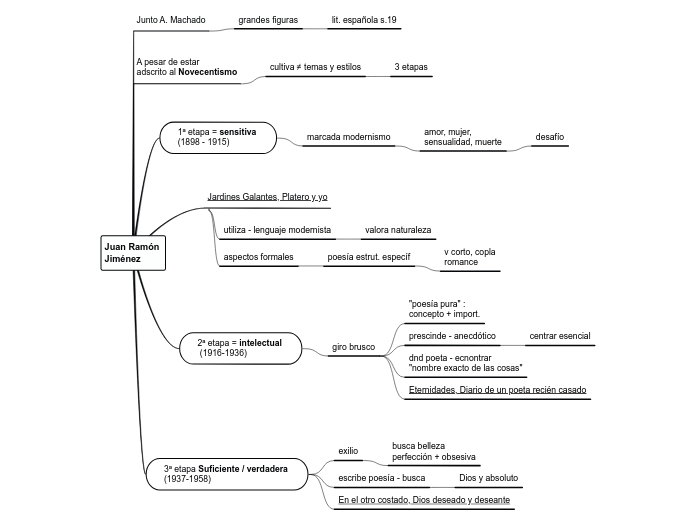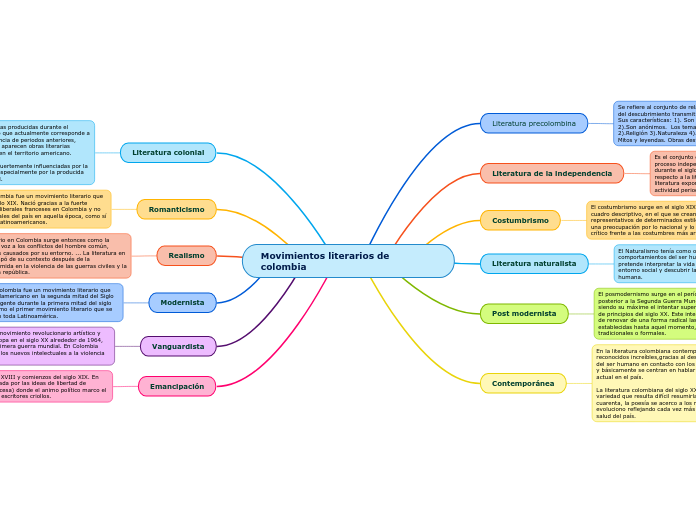Modernismo vs Generación del '98
Juan Ramón Jimenez (1881-1958)
Arias tristes, 1903
Platero y yo, 1914
Eternidades, 1918
En el otro costado (1936-42)
Rubén Darío (1867-1916)
Padre del Modernismo
Azul... (1888) obra más importante
Venus, soneto del 1890
Prosas Profanas 1896
Sonatina
Cantos de vida y esperanza
Pasión frente a la razón
Los modernistas potencian el dominio de la emoción sobre la lógica
Amor y Erotismo
El amor y la mujer se idealizan, con referencias e invocaciones a gozar del amor.
Cosmopolitismo
El escritor modernista es ciudadano del mundo
Exotismo
What particularity in pronunciation have you spotted?
Think of the sounds /o/ and /ae/, pronunciation of letter 'T', unaccented syllables, etc.
Example: sound /o/ is pronounced with rounded lips only in BrE.
El escritor modernista se encuentra en una realidad que le disgusta y por eso quiere evadir en el tiempo y en el espacio.
Inspirado en Parnasianismo y Simbolismo
Miscellaneous grammatical differences
Type in any other miscellaneous particularities of the two language versions.
Example: when naming rivers in AmE, the word 'river' comes after the name: 'Upper Delaware River'. In BrE, 'river' always comes in front of the name: 'River Thames'.
Culto de la palabra
Preposition differences
Type in the particularities regarding the use of prepositions in Standard British English (BrE).
Example: British sportsmen play in a team.
Preposition differences
Type in the particularities regarding the use of prepositions in American English (AmE).
Example: American athletes play on a team.
Sentimiento de desencanto
British English
Verb differences
What are the particularities regarding the use of verbs in Standard British English (BrE)? Type them in. Take into account the use of tenses, verb morphology, auxiliaries, transitivity, etc.
Example: BrE uses present perfect along with the words 'already', 'just' and 'yet' to talk about an event in the recent past: We have just arrived home.
American English
Verb differences
What are the particularities regarding the use of verbs in American English (AmE)? Type them in. Take into account the use of tenses, verb morphology, auxiliaries, transitivity, etc.
Example: AmE occasionally uses simple past instead of past perfect to talk about an event in the recent past: I just arrived from work.
Pesimismo
Modernismo
Saying numbers
Type in some of these situations.
Example: for the house numbers or bus numbers (or any short numbers of such), for example, 583, American speakers will say ' five eighty-three', while British people will say ' five eight three'.
José Martínez Azorín
Antonio Azorín
Castilla
Pio Baroja (1872-1956)
El árbol de la ciencia
Miguel de Unamuno (1864-1936)
El Cristo de Velázquez
Amor y pedagogia
Niebla
Temas
Las preocupaciones religiosas y existenciales
El tema de España
Características
Renovación de la conciencia nacional
Situación de malestar social
Rechazo a la generación anterior
Generación del '98
Particularity
Different words with the same meaning
There are many objects that are described by different words in American and British English.
Example: 'Cookie' (AmE) and 'biscuit' (BrE) both refer to the same sweet baked food.
Type in some of these words.









